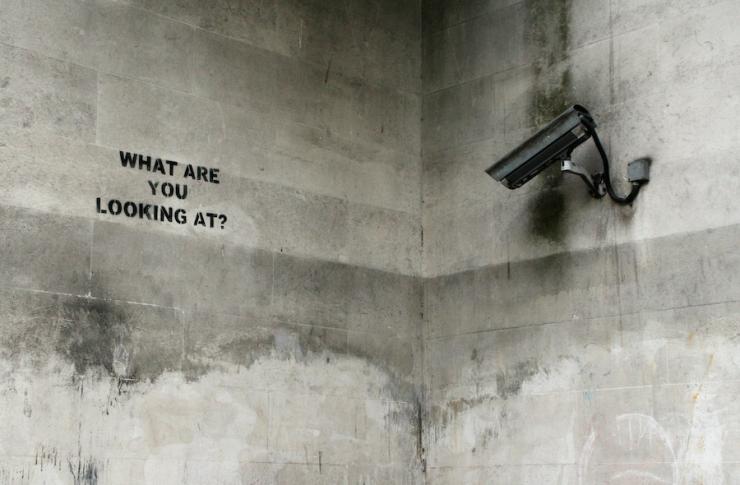
On 21 October 2025, we celebrate the fifth Encryption Day. As part of the Global Encryption Coalition, APC is highlighting how encryption is essential for keeping people, and especially marginalised communities, safe in uncertain times.
Encryption is the process of making messages or files unreadable by anyone except the people who have the key or password to decrypt them, explained Verónica Ferrari, APC's global policy advocacy coordinator, in this article. In the words of APC member Open Net Korea, it is saying something “in a secret language that is known only to a closed group of people.” It helps to create a privacy zone to protect opinion and belief.
Encryption is key to the enjoyment of human rights, including the freedoms of opinion, expression, association and the press and the right to privacy. As we stated in our explainer on cybersecurity, weakened encryption undermines human rights: it can make it easier for malicious actors to gain access to people’s personal information and communications. It can lead to journalists’ sources being revealed, human rights defenders being targeted by governments, and a person in an abusive relationship being blackmailed. Encryption and anonymity provide the privacy and security necessary for the exercise of a range of rights and should be strengthened.
Women and people of diverse genders and sexualities are especially vulnerable to violations of privacy. Encryption is also crucial for human rights defenders and women trying to obtain information otherwise considered taboo in their societies. In a new briefing on encryption and online gender-based violence, our associate Mallory Knodel and Hera Hussain highlight survivors’ needs and feminist perspectives, which are overlooked in debates dominated by law enforcement and victim narratives.
Yet, many states and companies have implemented or proposed measures to weaken encryption tools. For example, through the inclusion of “backdoors” in products, they can bypass the strongest protection and have unlimited access to seemingly secured information. Countries around the world have also put in place legal bans on the use of encryption of communications, in the name of security and law enforcement. In times of war and crisis, surveillance measures often grow, simply violating these rights.
In a joint statement on Encryption Day last year, multiple organisations called on call on governments and the private sector to reject increasing efforts to undermine encryption and instead pursue policies that enhance, strengthen and promote use of strong encryption.
This 21 October, we echo the Global Encryption Coalition’s call to action. We’ve also prepared a selection of resources to help you learn more about what encryption is, why it matters for our rights, both online and offline, and how you can use it. Read on to find out more.
What is encryption and why is it key to human rights?
This article offers an overview of the different ways in which encryption plays a crucial role in ensuring the protection of a range of human rights.Encrypting your hard disk: A guide
This guide addresses device encryption, which is a very useful type of protection in case your device is seized, stolen or lost.CryptPad on how it balances accessibility and privacy for secure digital collaboration
CryptPad provides a full suite of end-to-end encrypted tools for work collaboration. Here you can learn more about them in APC's Building a Free Internet of the Future monthly series of interviews.Take Back the Tech! campaign safety toolkit
Security-in-a-box is a collaborative project devoted to digital security and privacy. Here you can download software and access hands-on guides that teach you how to install and use these tools.Encryption is necessary for protecting child and adult survivors of gender-based violence
This is a brand new briefing on why feminist responses to digital violence should centre the dignity, safety and freedom provided by encryption as non-negotiables.Gender approaches to cybersecurity: Integrating policy, research and technical standards discussions
In 2024, APC brought together a group of experts from different regions working on gender, feminist technology, cybersecurity policy and governance, and technical standards to discuss and share viewpoints on gender approaches to cybersecurity. This report presents perspectives and insights shared at this event.Feminist Principles of the Internet (FPI) on anonymity
The Feminist Principles of the Internet are a series of statements that offer a gender and sexual rights lens on critical internet-related rights. In this one we defend the right to be anonymous and reject all attempts to restrict anonymity online.APC policy explainer: A human rights-based approach to cybersecurity
This explainer summarises some key points on the topic and provides a tool for policy and advocacy work.Global Information Society Watch: Communications surveillance in the digital age
This report (2014) examines the properties that make digital communication prone to surveillance and provides a general overview of where and how this surveillance takes place.#GlobalEncryptionDay 2025
Use this hashtag to follow and engage with the conversations around this year's Global Encryption Day on social media. Here is a taste of it on Mastodon.